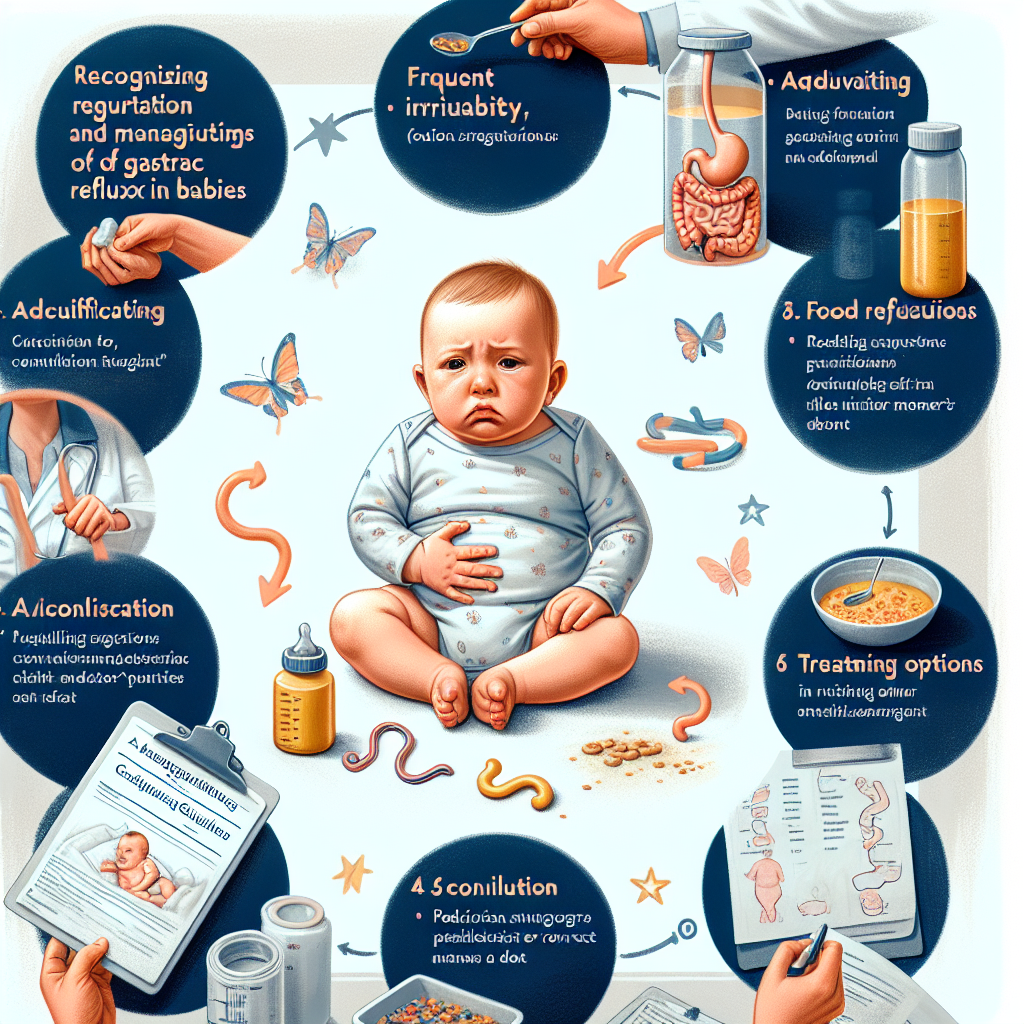Signs of Gastric Reflux in Babies: Tips and Solutions
Knowing about Gastric Reflux in Babies
Gastric reflux in babies is a common condition that can cause discomfort and worry for parents. Also known as GERD (gastroesophageal reflux), this refers to the passage of stomach contents back into the esophagus. It is important to understand that, although it is a source of discomfort, in most cases, reflux is a normal stage in the development of the baby's digestive system and tends to improve with age.
Signs and Symptoms
Babies with gastric reflux can exhibit various symptoms. Among the most common are frequent vomiting or regurgitation of milk, discomfort after feeding, constant crying and irritability. Other signals that parents should be on the lookout for include food refusal, difficulty swallowing, and persistent coughing or breathing problems that can occur in severe cases of reflux.
Contributing Factors and Triggers
Although the exact causes of reflux in babies are not always clear, there are certain factors that can contribute to the condition. At the same time, there may also be certain triggers that worsen the symptoms. For example, the mother's diet in breastfed babies, the position during and after feeding, and even the type of milk received in those who consume formula can have an impact on the frequency and severity of reflux.
Diagnosing Reflux
In most cases, the diagnosis of gastric reflux in babies is based on a detailed medical history and physical examination. If symptoms are severe or other health problems are suspected, the pediatrician may recommend additional tests, such as esophageal pH-metry or endoscopy. It is essential that parents communicate any concerns to the pediatrician in order to obtain a correct diagnosis.
Tips for Reflux Management
There are several ways parents can help relieve reflux symptoms in babies. These include adjustments in position during and after feeding, changes in the feeding routine and, at the doctor's recommendation, the possible use of milk formulas specially designed for babies with GERD. It is also important for parents to be patient and understand that reflux is a condition that usually improves with age.
When to Seek Medical Help
Although gastric reflux can be managed at home in most cases, there are situations where medical consultation is necessary. If your baby shows severe symptoms such as difficulty breathing, inability to gain weight or significant discomfort, it is crucial to seek medical help immediately. Also, if you notice worsening symptoms or the appearance of new health problems, do not hesitate to discuss these issues with your pediatrician.
Parental Care and Emotional Support
The baby's gastric reflux can also be a challenge for the parent's emotional and mental state. It is essential that mothers and fathers look after themselves and seek support if they feel overwhelmed or exhausted. Parenting support groups, counseling, and even talking to other parents who have been through similar experiences can provide comfort and valuable advice.
Alternative and Complementary Approaches
Some parents may also seek alternative approaches or complementary therapies to manage reflux in babies. This may include acupuncture, use of herbal preparations or changes in diet. It is important to talk to your pediatrician before trying any alternative treatments to ensure their safety and effectiveness.
Conclusion
Gastric reflux in babies is a common condition, but it can be managed with proper care and timely interventions. By following the tips and solutions discussed, parents can help reduce discomfort and improve the quality of life for both their baby and themselves. Remember to communicate and work with your pediatrician to ensure the best possible care for your little one.
For more information and support, please visit our dedicated baby section of our store or subscribe to our newsletter for regular tips and updates. Together, we can ensure that this challenging time goes as smoothly as possible for the whole family.














































































































































